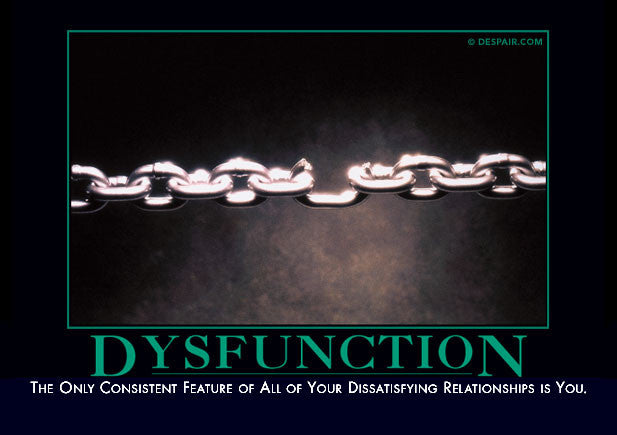I think she has a mad because she got banned from CE. (For the record, it wasn’t her politics that put people off and got her reported. It was her delivery). That’s possibly why she’s decided COTH is toxic and full of bullies.
HAHAHA, she got booted from CE?? That’s hilarious. She was toxic before that, though! She’s been like this since the beginning, saying this was a big group of meanies from her first few posts!
Not to be over serious, but it shouldn’t even be a trainwreck.
The trainwreck occurred because a certain poster has been peddling the same misconception for some time now. This is not the first thread in which it has been presented.
The same thing happens every time: COTHers very diplomatically point out the person’s facts are inaccurate for a variety of reasons. These same people spend a lot of time politely trying to engage in discourse with the poster. The poster becomes defensive and starts slinging the same insults: this place is known for toxic groupthink, “we” don’t want to face the truth, “we” don’t know what we are talking about, etc. Then the people who were originally trying to be polite get fed up and start snapping back. That’s the point I’m at right now.
I mean I knew that was coming after I repeatedly called out the double standard of the mod team for censoring the word “racist” but not censoring actual anti-asian racist slurs.I said there over and over again I’m definitely getting banned eventually.
And then I may have alluded to a certain user with the initials YD being a “hateful idiot” after she went on another one of her racist rants. I’ve said it before, if I get kicked out for being anti racist but you don’t want to kick people out for being actually racist, I don’t want to be there. 

You can think that if you want. I just know I’m not the first person on this board to express concern about the culture here. Also the people here participating are probably less likely to acknowledge there’s issues.
The majority of the folks are great and super helpful/ knowledgeable so that’s why I stick around but coth is definitely not the moral authority some of you seem to think it is.
HSUS… now there’s a reputable source. For me only slightly better than PETA.
I prefer non-sensationalized messaging and information and not messaging that plays to the mass’s heartstrings.
You are right, you’re not the first that feels that there is a ‘concern about the culture here’. You probably won’t be the last.
Most here are interested in discussion based on realistic information and not data and messaging intended to play to the masses. You appear to have been sucked into that messaging maw while others here I don’t think have been.
But your post is made off the basis of assumption. there is no proof that any of the horses in your list ended up in the slaughter pipeline. They could be in their owner/breeders backyards or something similar.
Yes, hundreds and thousands of TB’s are shipped off to slaughter every year in this country. There are many irresponsible trainers and owners within the TB industry here in the US> that isn’t a secret. One of them was just barred entries at Fairgrounds for this very instance. I don’t have the time nor the patience to sit here and type about the improvements needed within the North American TB industry. It’s long, its dramatic, and there are many issues that people continue to turn a blind eye to.
But the situation in Korea is far worse than that for TB’s here in the US. There are options here within the US to rehome or rescue TB’s if owners/trainers are willing to put the effort in. In Korea there is virtually no option. If the mare doesn’t produce, if the stallion doesn’t prove himself, if the yearling or 2 yr old does not meet expectations; they have a one way trip to the meat market. Culled for not meeting economical expectations like any other livestock. So yes, the situation in Korea needs to be noted and sellers consigning horses to countries like this need to be fully aware what the plight likely might be in a few short years for that animal. It’s like selling a racehorse to Puerto Rico. Its just about a one way trip and the vast majority don’t walk from that facility alive.
But like many will say the TB industry is a business and people need return on investments. I wholeheartedly agree; but I think making return on investments needs to be done with consideration for the welfare of the animal stuck in the middle of said lump sum transactions. Currently; the majority selling horses overseas are cashing the checks, wiping their hands, and turning a blind eye.
This is a bit of a blanket statement that everyone who sells overseas is turning a blind eye to what they sold. It does not take into account those who do think of the investment and choose not to sell overseas. It also doesn’t take into consideration that some?/many? horses sold overseas include repatriation language in the sales contract so the horse can return back to the US when their breeding career overseas is done.
There will always be bad apples but they don’t always spoil the whole bunch.
Thankfully that is only your opinion, with no basis in fact.
You seem to think that selling a horse “overseas” is a terrible practice. North American bloodstock has been purchased by breeders worldwide for decades.
And it has worked both ways- Sir Gallahad III came over here in the 1920s. That’s a long history of imported, as well as exporting, Throughbred horses, and others.
So true. If we hadn’t imported Ribot (even though he wasn’t supposed to stay) there would be no Danehill.
Sadlers Wells and Urban Sea carried North American bloodlines to Europe with spectacular results and Sunday Silence blood lives on in Japan.
Imported/Exported TBs have resulted in some of the top racing bloodlines in the world, and North American bloodlines have had a great part in that.
If Ribot hadn’t come over, I wouldn’t have two of my lovely, amazing stallions. One a grandson, one a great grandson. Both just the best.
You know, my ASBs are descended from a TB stallion named Grey Eagle. I adore my ASBs, but I will always love TBs.
That is an assumption. I have sold horses overseas and also purchased horses from overseas. Everyone i have purchased from our sold to have been wonderful to deal with, honest and have provided wonderful homes for the ones I have sold.
I applaud the US owners and breeders who have sold overseas with a clause in the contract; especially when they are selling to countries with a known history of disposing of horses that don’t turn out favorable for their programs. But there are many who don’t sell with said clauses and then act perplexed when the bloodhorse runs an article about the Koreans slaughtering said horse.
If you care about the well being of the horse and ensuring it is not sent to a slaughterhouse in Asia; it is very easy to put a clause in the sale contract to ensure the horse is protected (at least for ones sold privately).
Those clauses are nice to have in any purchase agreement, but they are not easy to enforce. It’s more of an honor system when selling.
I know, I’ve written them into contracts when selling a horse, but it’s not guarantee. It is, however, a way for me to let the new owner know that I wish to be given right of first refusal. If the horse gets more training or becomes more valuable I may not have been to AFFORD to repurchase, but that doesn’t mean I didn’t want the option.
Can you name any names of people who’ve sold horses overseas that then acted perplexed when the Bloodhorse ran an article about Koreans slaughtering horses?
I would agree that ‘right of first refusal’ clauses are nice to have but hard to enforce. What we don’t know about many of the horses ‘sold’ overseas is what the actual contract language was. Was the horse outright sold or some other agreement to help put some teeth in getting the horse back to the US.
We just don’t know sometimes how the horse was ‘sold’ with what contingencies or other verbiage to hep ensure the horse comes back. I am assuming one of the key factors is covering costs if the horse is to be returned back to the US. A horse that didn’t cost much to acquire is not likely to have the seller shell out money to ship the horse back and the buyer, if the horse is perceived as not that valuable, won’t spend the $$ either.
Bringing an intact stallion back into the US is not inexpensive as CEM quarantine protocols must be followed or geld the horse. Forget his name but this happened recently with an older stallion repatriated back to the US. Was gelded before he could take up residence at Old Friends.
No, we don’t know. That is between the buyer and seller.
That was War Emblem who was gelded in quarantine, I think. Still was a mean SOB at Old Friends.

